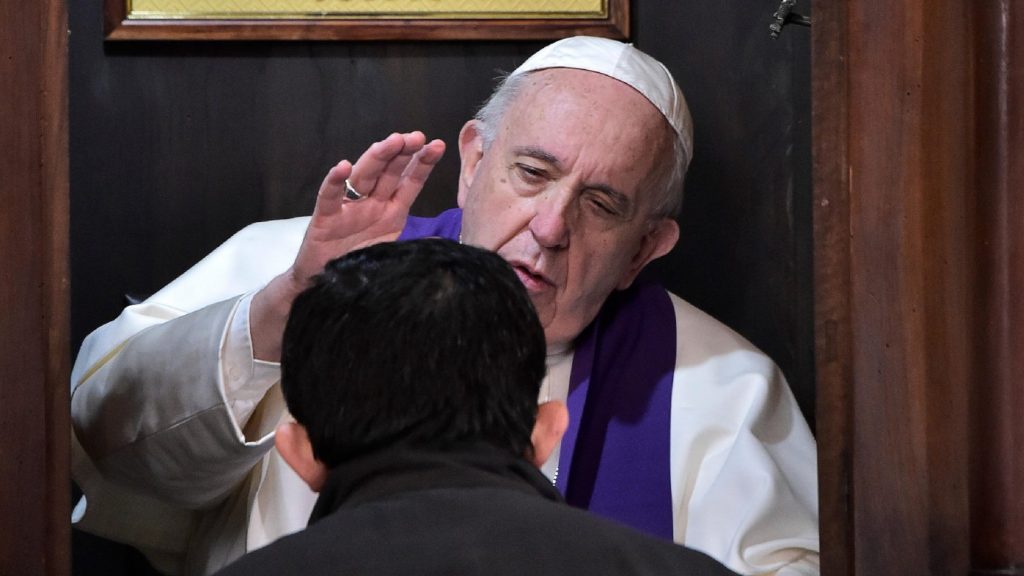Pope Francis has encouraged Catholics to practice charity in Lent this year by caring for those affected by the coronavirus pandemic.
In his message for Lent 2021, the pope asks people to “experience Lent with love,” which “rejoices in seeing others grow.”
“To experience Lent with love means caring for those who suffer or feel abandoned and fearful because of the COVID-19 pandemic. In these days of deep uncertainty about the future, let us keep in mind the Lord’s word to his Servant, ‘Fear not, for I have redeemed you’ (Isaiah 43:1). In our charity, may we speak words of reassurance and help others to realize that God loves them as sons and daughters,” Pope Francis wrote in the message published Feb. 12.
The pope emphasized that even a small amount of almsgiving when offered with “joy and simplicity” can multiply, as did “the loaves blessed, broken and given by Jesus to the disciples to distribute to the crowd.”
“Love is a gift that gives meaning to our lives. It enables us to view those in need as members of our own family, as friends, brothers or sisters. A small amount, if given with love, never ends, but becomes a source of life and happiness,” he said.
The pope’s Lenten message centers on the three theological virtues of faith, hope, and love. Pope Francis signed the message, entitled “Behold, we are going up to Jerusalem. Lent: A Time for Renewing Faith, Hope, and Love,” on Nov. 11, the feast of St. Martin of Tours, in Rome’s St. John Lateran Basilica.
The liturgical season of Lent will begin this year with Ash Wednesday on Feb. 17. The Vatican has instructed priests to distribute ashes by silently sprinkling them on people’s heads this year due to the pandemic.
Pope Francis said that the theological virtue of hope is particularly important as the world continues to grapple with the effects of the pandemic.
“In these times of trouble, when everything seems fragile and uncertain, it may appear challenging to speak of hope. Yet Lent is precisely the season of hope, when we turn back to God who patiently continues to care for his creation which we have often mistreated,” he said.
“St. Paul urges us to place our hope in reconciliation: ‘Be reconciled to God’ (2 Corinthians 5:20). By receiving forgiveness in the sacrament that lies at the heart of our process of conversion, we in turn can spread forgiveness to others.”
The pope said that one can give hope to others by being kind, sharing the “gift of a smile” or speaking a word of encouragement.
“In Lent, may we be increasingly concerned with speaking words of comfort, strength, consolation and encouragement, and not words that demean, sadden, anger or show scorn,” he said.
He added: “Through recollection and silent prayer, hope is given to us as inspiration and interior light, illuminating the challenges and choices we face in our mission. Hence the need to pray (cf. Matthew 6:6) and, in secret, to encounter the Father of tender love.”
“To experience Lent in hope entails growing in the realization that, in Jesus Christ, we are witnesses of new times, in which God is ‘making all things new’ (cf. Revelation 21:1-6). It means receiving the hope of Christ, who gave his life on the cross and was raised by God on the third day, and always being ‘prepared to make a defense to anyone who calls [us] to account for the hope that is in [us]’ (1 Peter 3:15).”
In a Vatican press conference discussing the pope’s Lenten message, Cardinal Peter Turkson, prefect of the Dicastery for Promoting Integral Human Development, said that Pope Francis weaved together the traditional Lenten practices of fasting, prayer, and almsgiving with the three theological virtues, revealing their interconnectedness.
Turkson said that it was particularly important during the pandemic to be rooted in the practice of prayer to cultivate the theological virtue of hope, which can give one a sense of “vision” when confronted with the world’s problems.
Msgr. Bruno Marie Duffé, secretary of the dicastery, commented: “Fasting opens our spirit, body and whole being to the gift of God. By breaking with an egocentric, egotistical lifestyle and excessive, even compulsive consumption … we consent to live a poverty that is an openness to others and to God. And we receive a love that comes to us from the Father and from Christ.”
“Fasting, therefore, consists in freeing our existence from what encumbers it, from the overload of things, useful and useless, from true or false information, from the habits and dependencies that bind us, to open the door of our hearts and minds to the One who comes to share our human condition until death: Jesus, the Son of the living God.”
Pope Francis wrote in his Lenten message that fasting, prayer, and almsgiving “enable and express our conversion.”
“The path of poverty and self-denial (fasting), concern and loving care for the poor (almsgiving), and childlike dialogue with the Father (prayer) make it possible for us to live lives of sincere faith, living hope and effective charity,” he wrote.
These traditional Lenten practices “revive the faith that comes from the living Christ, the hope inspired by the breath of the Holy Spirit and the love flowing from the merciful heart of the Father,” Francis said.
“May Mary, Mother of the Saviour, ever faithful at the foot of the cross and in the heart of the Church, sustain us with her loving presence. May the blessing of the risen Lord accompany all of us on our journey towards the light of Easter.”

